OPFS urges action to address ‘devastating’ child poverty statistics
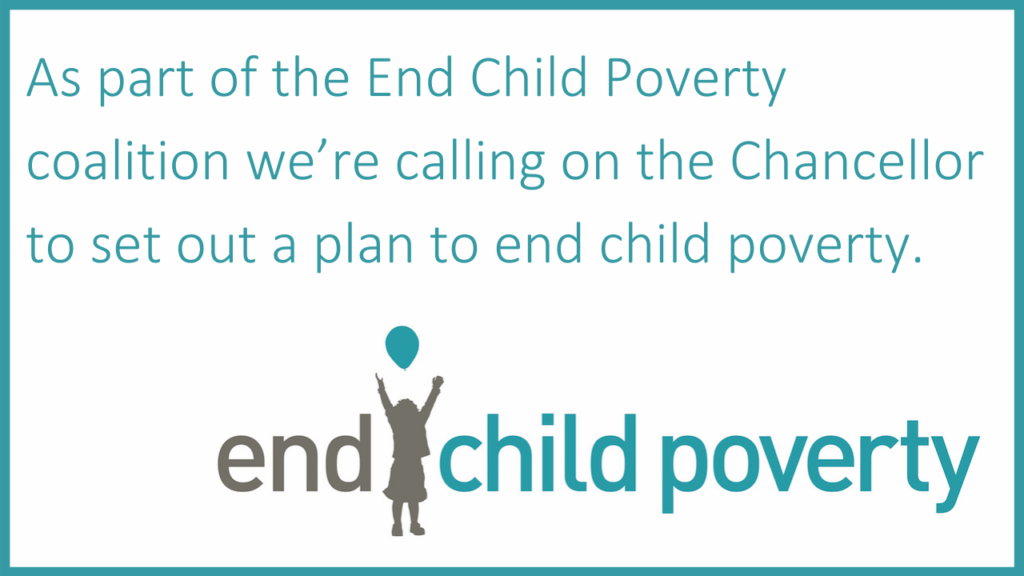
13/10/2020
News
One Parent Families Scotland, a member of the End Child Poverty Coalition, has joined its partner organisations in calling for urgent political action as new figures reveal a rise in child poverty.
A new report and data on child poverty across the UK was published by End Child Poverty today (14 October) based on research by Loughborough University. The figures show that child poverty has risen in nearly every Scottish local authority and Westminster constituency since 2014/15. Levels of child poverty in Scotland ranged from one in seven children in the Shetland Islands to nearly one in three in Glasgow.
The End Child Poverty coalition in Scotland is calling on both the UK and Scottish Governments to take action now through the social security system to lift families out of poverty.
One Parent Families Scotland supports the coalition’s calls and notes that children in single parent families are at particular risk of poverty, with a recent Scottish Government report putting the figure at 39% prior to Covid-19.
- Satwat Rehman, Chief Executive
Poverty in single parent families
See all our calls to action for the UK Government and Scottish Government, taken from the recommendations we contributed to the Scottish Government’s evidence review on poverty in single parent families in August.
Read a poem written by a single parent in Glasgow about life on social security, ‘Hanging by a Thread’.
See Public Health Scotland’s paper on ‘COVID-19 and lone parent households’.
In the five areas where One Parent Families Scotland has local services, the percentage of children living in poverty after housing costs ranges from one in five to nearly one in three children, all higher than in 2014/15.
- Dundee: 27.3%
- Edinburgh: 19.5%
- Falkirk: 24.5%
- Glasgow: 31.8%
- North Lanarkshire: 26.2%
Director of One Parent Families Scotland Satwat Rehman said:
“The pre-pandemic statistics published today demonstrate the devastating impacts of an austerity agenda. In the areas where our local services work, child poverty levels range from one in five children in Edinburgh to nearly one in three in Glasgow.
“It’s no coincidence that Glasgow, the area with the highest rate of child poverty, is the area with the highest proportion of single parent families in Scotland. The combination of balancing the responsibility for childcare and household earnings alone while social security has been cut means many single parent families have been pushed to the brink.
“The UK Government did the right thing in raising Universal Credit during the pandemic. It can do so again by making the uplift permanent and by listening to low-income families about the other reforms which are urgently needed to Universal Credit.
“At the same time, the Scottish Government can take action to offer further support to families, for example by increasing the value of the Scottish Child Payment, particularly for groups more at risk of poverty, and by reducing the cost of the school day by increasing school clothing grants.
“Children are being plunged into poverty by a badly broken system. If there was ever a time to fix it, it’s now.”
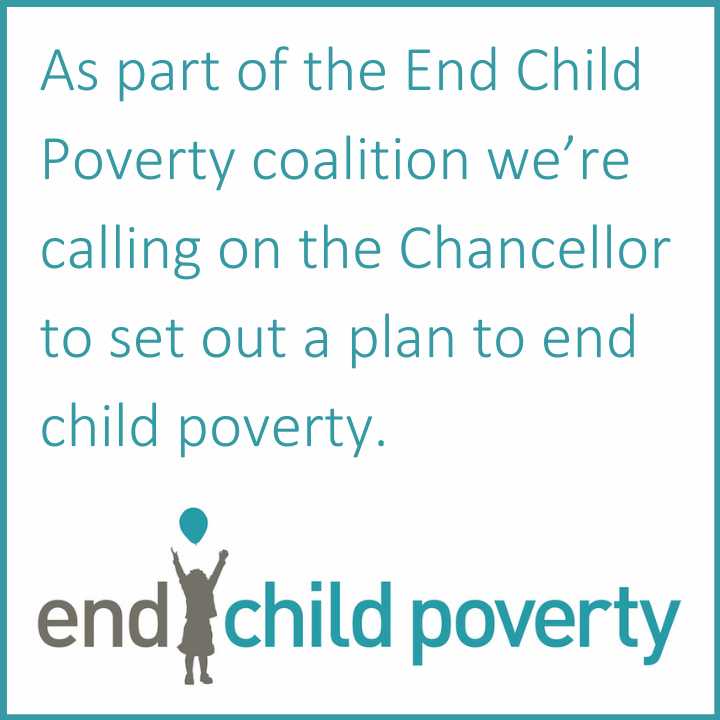
Ask your MP to help
Your MP can write to the Chancellor asking for child poverty to be a priority in his plans for the economy. The End Child Poverty coalition iscalling for an ambitious plan that should include greater investment in social security and action on low pay and insecure work. Even more urgently, we need the the UK Government to #KeepTheLifeline by keeping the £20 increase in Universal Credit in place instead of lowering this in April next year.
You can write to your MP now using this form on the End Child Poverty website.
Calls to Action
One Parent Families Scotland made a range of recommendations for action for both the UK and Scottish Governments as part of our contribution to the Scottish Government’s evidence review on poverty in single parent families, published in August as part of its annual progress report on tackling child poverty.
Below are four of the key areas we highlighted, focusing here on steps that can be taken through social security and grants for low-income families.
UK Government
Benefit and tax credit rates
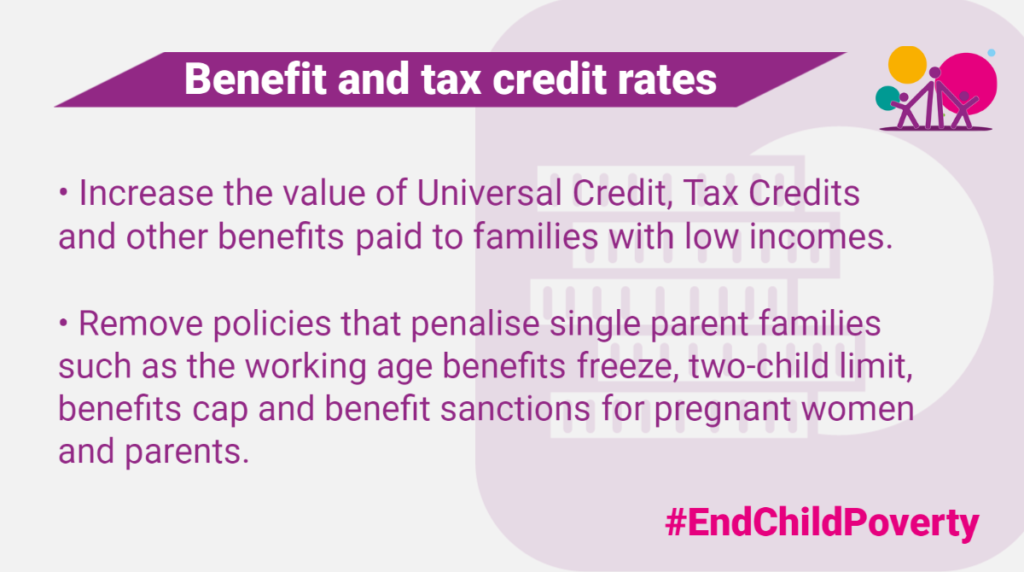
- Increase the value of Universal Credit, Tax Credits and other benefits paid to families with low incomes.
- Remove policies that penalise single parent families such as the working age benefits freeze, two-child limit, benefits cap and benefit sanctions for pregnant women and parents.
Universal Credit reform
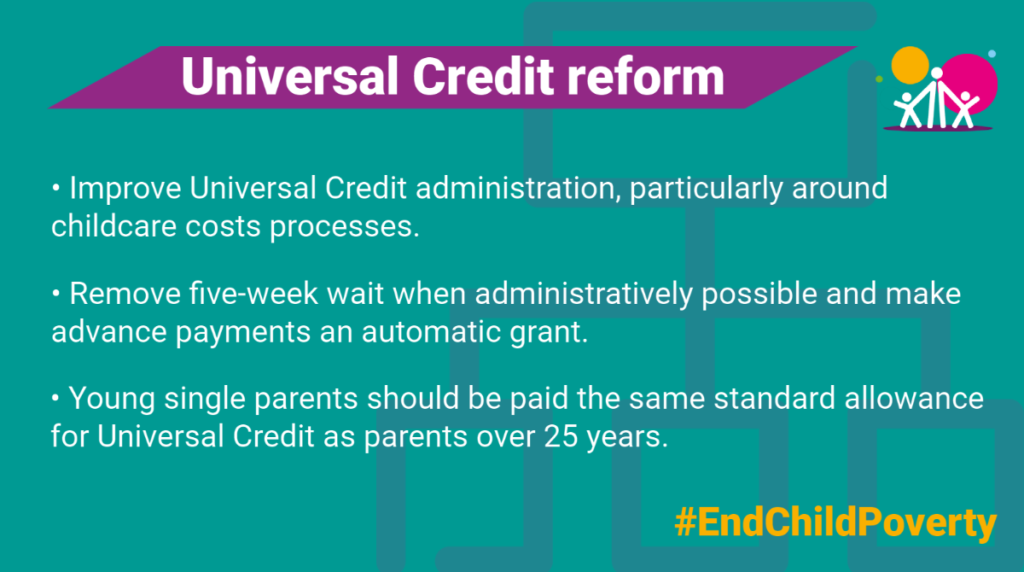
- Improve Universal Credit administration, particularly around childcare costs processes.
- Remove five-week wait when administratively possible and make advance payments an automatic grant.
- Young single parents should be paid the same standard allowance for Universal Credit as parents over 25 years.
Scottish Government
Devolved social security
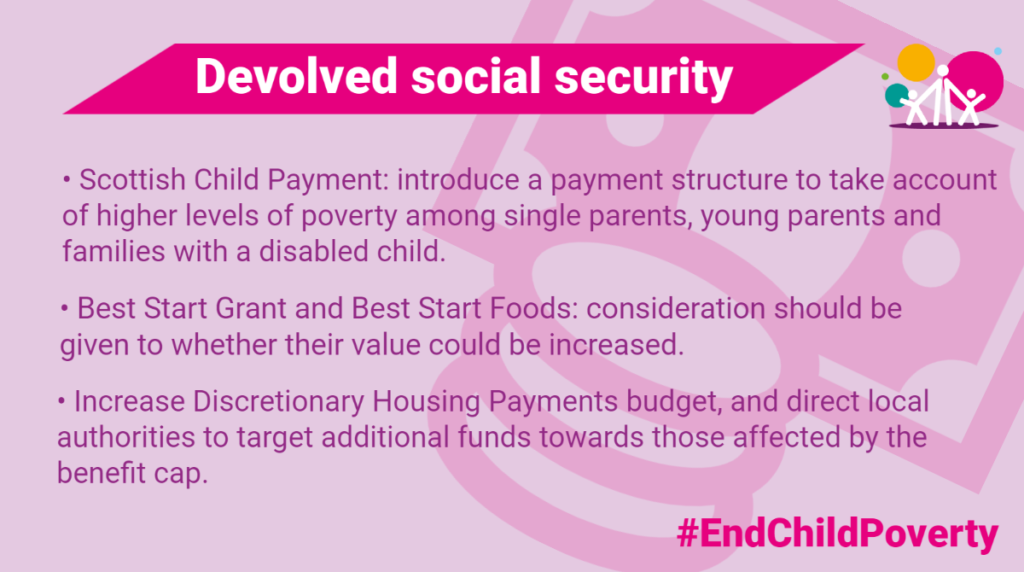
- Scottish Child Payment: introduce a payment structure to take account of higher levels of poverty among single parents, young parents and families with a disabled child.
- Best Start Grant and Best Start Foods: consideration should be given to whether their value could be increased.
- Increase Discretionary Housing Payments budget, and direct local authorities to target additional funds towards those affected by the benefit cap.
Cost of the school day
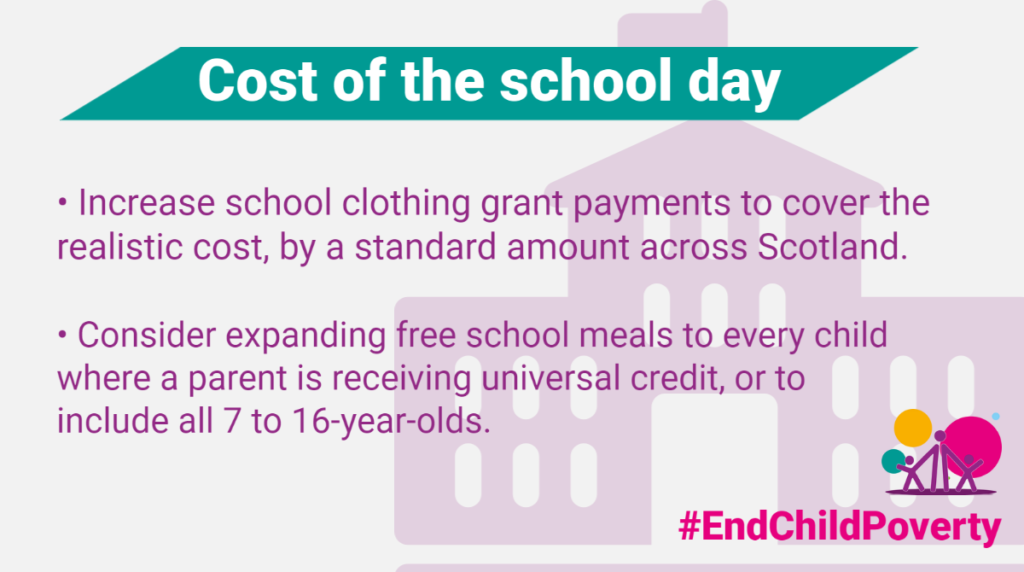
- Increase school clothing grant payments to cover the realistic cost, by a standard amount across Scotland.
- Consider expanding free school meals to every child where a parent is receiving universal credit, or to include all 7 to 16-year-olds.